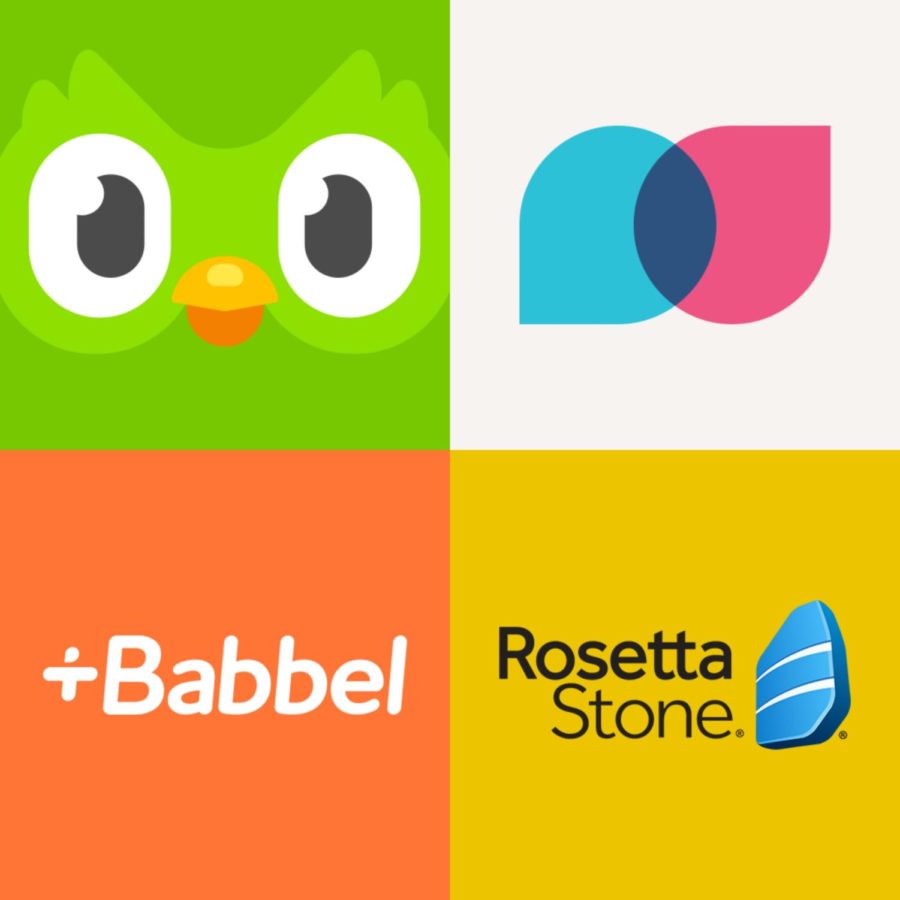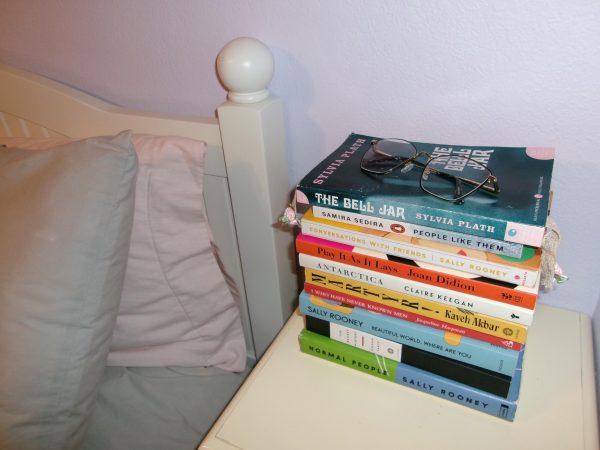Language Learning: Strategies and Advice
Duolingo (top left), Tandem (top right), Babbel (bottom left) Rosetta Stone (bottom right)
Learning a language is an often difficult and confusing process. Whether it be a lack of motivation or a loss of interest over time, people often drop languages and stop learning them. Most schools teach only a few languages, and it prevents students from wanting to learn them. School isn’t necessarily the only way to get interested in a language and there are dozens of other ways to start that don’t require teachers or tutors.
Not only do you have to learn an entirely new way to speak, but certain languages require learning a new writing system. Some languages even have more than one alphabet, making it all the more challenging.
Over the years, numerous different options for learning languages have shown up, but some only teach the very basics or require payment. Duolingo, Babbel, and Rosetta Stone are a few of the most widely used language-learning apps, but are they really the best ways to learn a new language? At the very most, these apps help to introduce someone to the basics, but over time their utility decreases, and they no longer teach anything new or helpful.
A useful tip for learning a new language is to get involved in the entertainment and culture surrounding it. Music, TV shows, and plays are great ways to increase involvement in the culture as well as improve your listening skills. Understanding the people and the history of the country gives better insights into how and why cultures and languages are the way they are.
Depending on what your native language is, learning one could be easier than others. If you speak a romantic language like English; Spanish and French are much easier to learn than a language like Mandarin or Korean. Practicing daily, or at least frequently, is required to learn the language as well as possible.
Some language apps are better at certain aspects than others. One might be better at helping remember alphabets and characters while others may be better at helping with grammar structuring or vocabulary. So depending on what your language learning goals are, you may want to look into different apps before choosing which one to use.
One application that I know personally is called Tandem, it is the most effective one I’ve found. It allows you to speak to and become friends with native speakers of your target language. Not only do you learn from them, but you can teach them at the same time.
My advice for anyone trying to learn a new language is to not focus on trying to find the most effective way of learning. Just do what you can until you find something that works for you.

Darren Langstaff is a senior at Arroyo Grande High School. He enjoys listening to a lot of music, reading fantasies, and writing fictional stories every...






